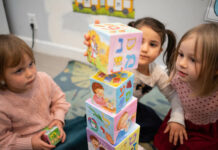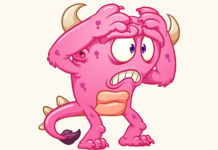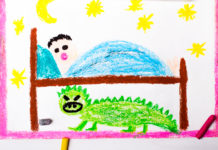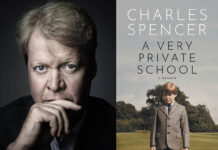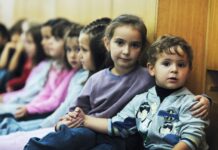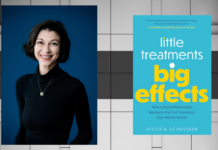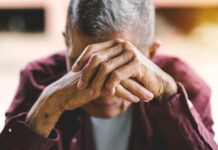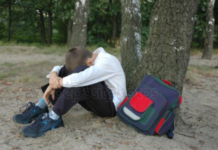As a Psychologist, I’ve Seen Many Children Misdiagnosed as Autistic—It’s a Clinical Catastrophe
The ASD diagnosis glosses over the many developmental specifics that might underlie a child’s challenges related to social communication.
“A Dangerous Substance”: The Impact of Social Media on Youth Mental Health
This is what social media does, she says. It draws people in. It hurts people. In the worst cases, it kills people.
NIMH’s It-girls: The Genain Quadruplets and the Whiteness of Psychiatry
The poster-children of psychiatric genetics, who endured abuse throughout their lives, were also the product of a racist culture.
The False Memory Syndrome at 30: How Flawed Science Turned into Conventional Wisdom ...
Soon after states finally began providing adults who remembered childhood abuse with the legal standing to sue, the FMSF began waging a PR campaign to discredit their memories—in both courtrooms and in the public mind.
Reflections on the Silicon Valley Teen Suicides-by-Train: Fifteen Years Later
A psychiatrist and mom reflects on teen suicide clusters in Palo Alto and discusses alternative ways to address adolescent mental health.
The Nurtured Heart Approach Goes Mainstream: Research and Experience Support “Celebrating Greatness in Every...
The Nurtured Heart Approach represents a massive shift in thinking—about schooling, about children and how to raise them, about how we regard those with intensity, and about the medical model pathologizing them.
Helping Children to Overcome OCD: 6 Creative Strategies for Parents
Here, Dr. Ben Furman offers a creative approach to helping children who struggle with OCD. Explaining why behaviors like reasoning, reassuring, and superstitious rituals don’t work, he suggests engaging alternatives that teach kids how to manage their “worry monster” and make sense of their distressing experience.
The Note
I’ve helped dozens of my students through tough times and suicidal thoughts. But my own child? How do I handle THIS?
Helping Children With Angry Outbursts
Finnish psychiatrist Ben Furman reviews various non-drug therapies for children with aggressive outbursts of anger, including the Kids' Skills approach that he and social psychologist Tapani Ahola developed. These approaches focus on helping children come up with their own ideas for overcoming their problems with the help of family and friends.
The Path from Trauma to The Power of Nature: An Interview with Banning Lyon
Our guest today is Banning Lyon, author of The Chair and The Valley: A Memoir of Trauma, Healing, and The Outdoors. An account of...
Childhood Bipolar Disorder, Deconstructed
Diagnosing children with juvenile or pediatric bipolar disorder is largely an American phenomenon. Do we actually have more “bipolar” children in the United States—or are we simply labeling more of them as such? If it is ever fair to call a child “manic,” isn’t the child’s environment the direction in which we should look?
Adverse Childhood Experiences: When Will the Lessons of the ACE Study Inform Societal Care?
The ACE study tells of how adverse childhood experiences increase the risk of psychological and physical problems in adulthood. When will we start incorporating these findings into public health policy and medical care?
The TikTokification of Mental Health on Campus
Many people view their social media feeds as reflections of their identities—and when posts center on a specific diagnosis, it can feel like the platform is diagnosing them.
Charles Spencer’s Story of Boarding School Abuse Is Haunting
But parents are still sending children away to board, and it’s still dangerous.
Medicating Preschoolers for ADHD: How “Evidence-Based” Psychiatry Has Led to a Tragic End
The prescribing of stimulants to preschoolers diagnosed with ADHD is on the rise, which is said to be an "evidence-based" practice. A review of that "evidence base" reveals that claims that ADHD is characterized by genetic and brain abnormalities are belied by the data, and that the NIMH trial of methylphenidate in this age group told of long-term harm.
Conveying Hope, Empowering Teens: An Interview With Jessica Schleider
Clinical psychologist Jessica Schleider is founding director of the Lab for Scalable Mental Health, researching single-session interventions.
Withdrawing Kids from Psych Drugs: Why, How, and When
Here are methods for reducing or eliminating a child's psychiatric medications that I have seen work well over years of supporting families through this process.
Challenging Western-Centric Child Psychology: An Interview with Nandita Chaudhary
Ayurdhi Dhar interviews Nandita Chaudhary about children’s lives across cultures, the problems with global aid agencies and their interventions, psychology’s bias in the study of children, the limits of attachment theory and more.
Elder Eyes Wide Shut
There is no universal moral code: Elder law and the injustice and inhumane practice of legal guardianship are a calculated effort by the court, the attorneys, and the healthcare system.
Dismissing the “Human Experience”: College Students Feel Unseen by the Medical Model of Mental...
In conversations with college students and recent graduates from across the country and around the world, they described feeling dismissed by views of mental health that narrow their experiences to individual medical problems.
Interview: The Need for Trauma-Informed Schools
CTIPP Executive Director Jesse Kohler answers our questions about the organization's new report and what the findings mean for families and communities.
Medical Journals Refuse to Retract Fraudulent Trial Reports That Omitted Suicidal Events in Children
The published articles underreported suicide-related events and provided false claims that the drugs were effective.
SSRIs, Lindsay Clancy, and Me
Sharing the similarities between Lindsay Clancy's homicidal episode and my own will hopefully help prevent rare SSRI-induced suicides and homicides, including mass shootings.
“I’m Not Going, You Can’t Make Me!”: A Community Approach to School Refusal
Consider an imaginary child called Jack who has been avoiding school as much as possible for a month. Standard practice would be cognitive-behavioral therapy or psychoactive drugs to help Jack deal with his anxiety. But what if Jack's social network instead mobilized to help him regain the role of student?
Supporting Children and Parents to Withdraw from Psychiatric Medication
The main problem with prescribing psychiatric drugs to children is that it hasn’t been very effective.






